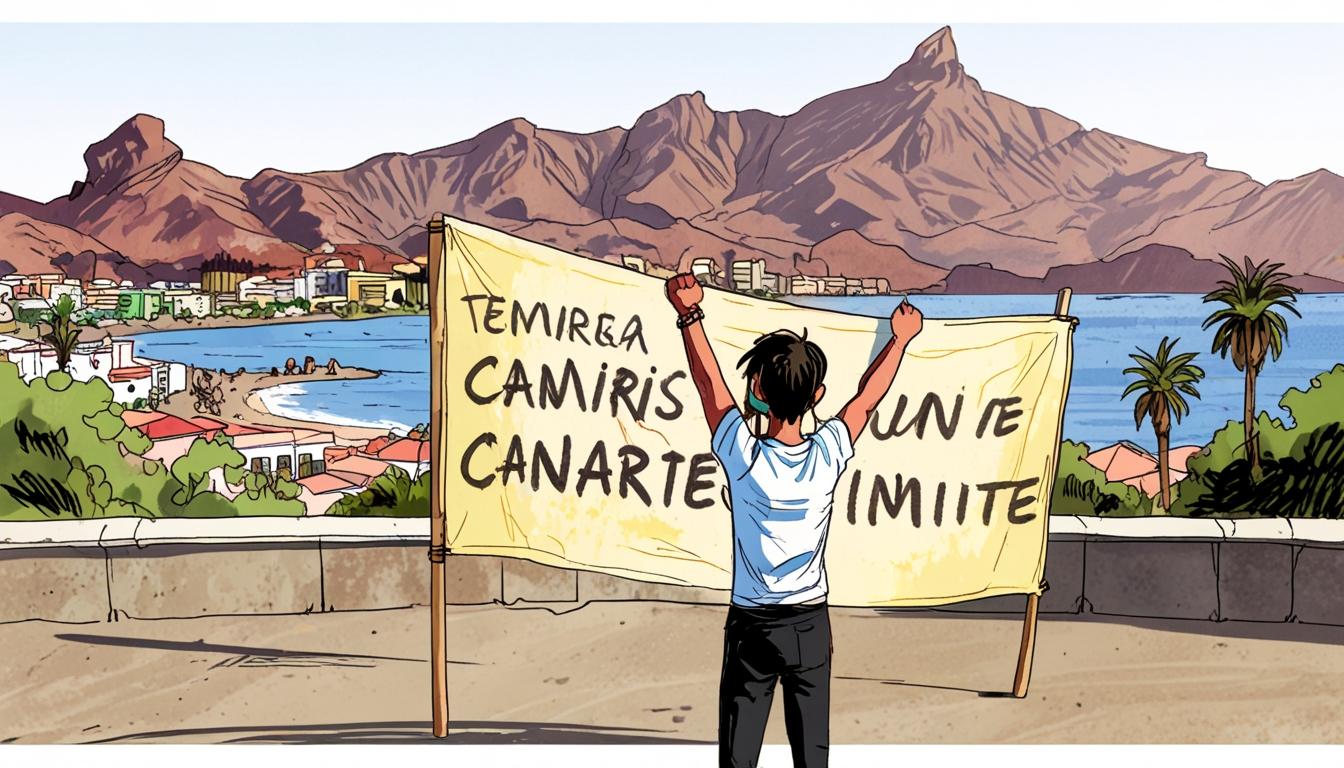The Canary Islands are facing a pivotal moment in their tourism industry as new government regulations are proposed amidst mounting protests against the region's tourism model. The surge in public demonstrations has particularly focused on Tenerife, where activists accuse the current tourism framework of benefiting only a privileged few at the expense of local communities.
The activist group Canarias tiene un límite (The Canaries Have a Limit) has announced a campaign set to begin on 18 May, aiming to disrupt the tourism sector through targeted actions. Their plans include boycotting public events, confronting political leaders during public appearances, and occupying key tourist sites. The group released a statement declaring: "From now on, we will take our fight to the very spaces where their predatory model is perpetuated. The Canary Islands can no longer be a postcard backdrop for the enjoyment of a privileged few."
In their statement to Birmingham Live, the group further warned that their campaign would mark a shift towards a "firmer, more direct, more uncomfortable" method of protest to compel authorities to implement substantive changes. They described their actions as the expression of a populace "tired of being ignored and mistreated."
In response to growing concerns, the Canary Islands government launched a public consultation on 21 April to review and update existing tourism legislation, including the General Tourism Law of 1995 and the 2013 Law on Tourism Renewal and Modernisation. These updates aim to address the "current challenges and realities" affecting the islands’ tourism sector, which remains a vital economic pillar.
Alfonso Cabello, spokesperson for the regional government, emphasised an inclusive approach to the consultation, stating, "We're doing this the Canary Islands way - extending a hand and listening to everyone." Meanwhile, Jessica de León, the Minister of Tourism and Employment for the Canary Islands, highlighted the importance of aligning tourism policies with social and environmental needs. She remarked, "The new regulation must align with today's social and environmental realities, correcting outdated elements and integrating changes from national and regional rulings, including Constitutional Court decisions."
Public reaction to the unfolding situation reflects a variety of viewpoints. A British commenter expressed sympathy for the islanders' predicament, noting, "You have to feel some sympathy with the Islanders, they need tourism but they need the right kind of tourism. All inclusive kills the local economy however at the same time they need to manage the costs charged and the amount of tourists that can be on the island at the same time." Another commenter suggested alternative travel destinations within the UK, recommending visits to the North Yorkshire Moors, Whitby, Scarborough, and the North Yorkshire Moors Railway.
One individual proposed practical measures for the Canarian government, suggesting that increasing housing provisions for residents or limiting the proportion of AirBnB properties could alleviate local housing pressures: "If the various branches of The Canarian Govt could manage a building programme to house residents into maybe a way forward. Even simpler, limit air bnb properties at any one time to a very small % of housing stock available."
With the public consultation underway and activist campaigns set to intensify, the Canary Islands face a critical juncture in redefining their tourism sector—balancing economic necessity with sustainability and community welfare. The outcomes of these developments are closely watched by residents, policymakers, and the tourism industry alike.
Source: Noah Wire Services
